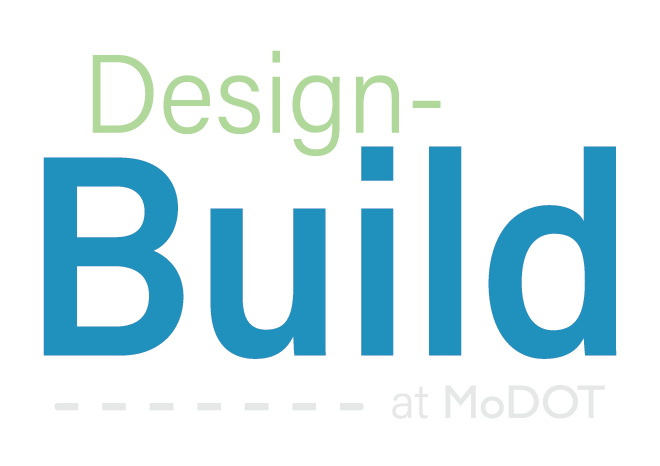Design-Build Philosophy
MoDOT has developed a DB philosophy and process that focuses on the desired end result for the project with the maximum flexibility and innovation for designing and building within the available project budget. Most other DOTs have very prescriptive requirements for DB contractors to follow, which limits the creativity of the private sector and ultimately limits how much scope you can get for the money. MoDOT allows the Design-Build contractors the option of submitting other state DOT design and construction specifications that have been approved by the Federal Highway Administration. They are not required to use only MoDOT standards. They can propose utilizing a best practice from another state DOT and MoDOT can approve that idea for use on its project. This practice has enabled MoDOT to successfully get more scope for the money on the three projects completed and three projects under contract.
Design-Build Goals
Establishment of project goals is critical to the success of MoDOT’s DB philosophy. Since MoDOT focuses on end results, the goals serve as the ultimate basis for decision making. For example, MoDOT does not prescribe the exact bridge type, instead, MoDOT requires the contractor to build a new bridge designed to last 100 years with minimal maintenance. The evaluation criteria on which the proposals are judged is directly derived from the project goals. Goals are developed by the project team with review and approval by senior management. Goals are listed in priority order. In the event goals are conflicting, the order will help determine the design decision.
Design-Build Confidentiality
The Design-Build process requires strict confidentiality. Since MoDOT allows for such a flexible process encouraging contractor innovation, the DB teams share ideas and discuss options with MoDOT staff. These discussions must be kept in confidence. The DB team’s ideas could be the edge that helps them win the contract. All MoDOT employees involved in the DB process are required to sign confidentiality agreements, and are not to enter into discussions about the project with any other MoDOT employee or any individual who has not signed the confidentiality agreement. The DB teams must have faith in this confidence. They could be spending millions of dollars in developing their proposal for submittal.
Design-Build Schedule
The Design-Build procurement schedule generally lasts six-eight months compared to the 18-24 months it takes to award a construction contract for traditional design-bid-build. In design-bid-build, the design is completed and then the plans are provided to contractors to bid on the established design. The lowest responsive bidder wins the construction contract. With DB, the contractor team designs and constructs the project concurrently. The bid proposal includes their 30 percent design ideas and their construction schedule. Using established evaluation criteria, the DB proposals are evaluated on the best value proposal within the available budget to award the DB contract.
Disadvantaged Business Enterprises (DBEs) and Workforce Diversity on Design-Build Projects
The goal of the DBE program on Design-Build projects is no different than on traditional projects – provide opportunities to small businesses owned and operated by disadvantaged individuals to participate in the economic benefits of highway construction. MoDOT has a supportive services program to assist in developing the capability and capacity of underutilized DBE firms. Also as in traditional projects, DBE and Workforce Diversity programs include contract compliance, on-the-job training and Title VI non-discrimination and commercially useful function reviews. MoDOT’s Design-Build projects also incorporate community outreach, partnering with local contractors and community groups, preapprenticeship training, on-the-job trainee programs and safety training.

